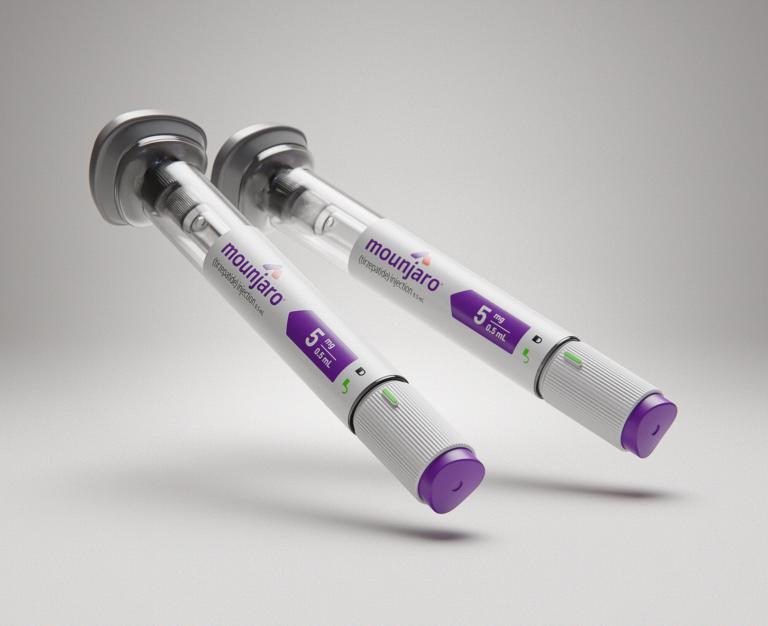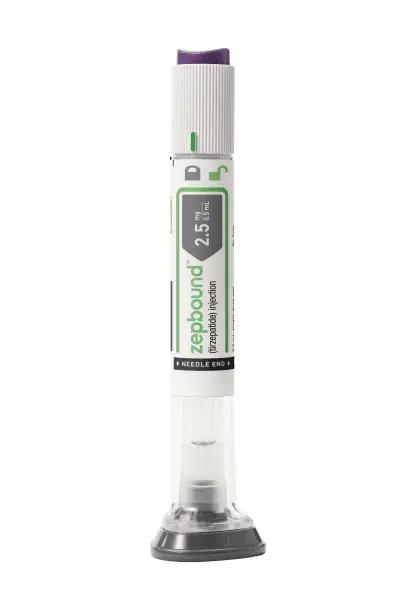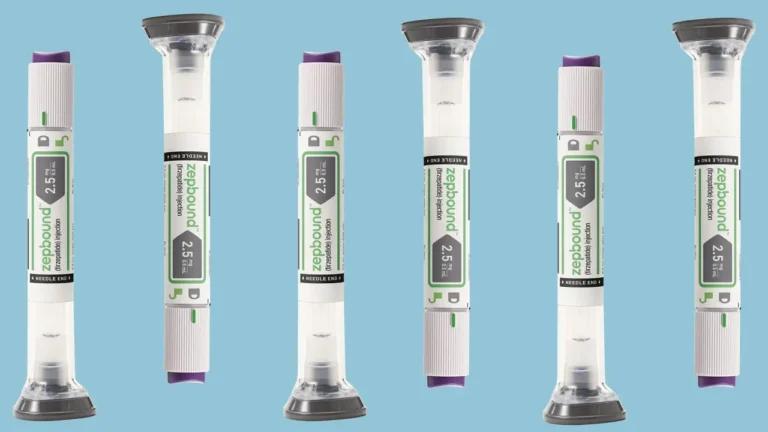Navigating the complexities of medication costs for chronic conditions is crucial, especially when comparing Mounjaro and Zepbound, which contain the active ingredient tirzepatide. While Mounjaro has made strides in managing type 2 diabetes, its implications for conditions like pancreatitis and its use during pregnancy remain important considerations.
On the other hand, the new weight loss drug Zepbound’s approval for chronic weight management underscores its role in aiding individuals struggling with obesity-related health issues. This article provides a comprehensive guide on the financial aspects of these medications, shedding light on the cost comparison that patients and healthcare providers must contemplate.
Overview of Mounjaro
Brand name Mounjaro, known generically as tirzepatide, is a significant advancement in the treatment of type 2 diabetes, offering a dual approach to blood sugar management. It is manufactured by Eli Lilly and available in various strengths, catering to individual patient needs. Here are key points about Mounjaro:
Treatment and dosage:
- Approved for managing type 2 diabetes in adults
- Administered subcutaneously once a week
- Starting dose is 2.5 mg, with a maximum recommended dose of 15 mg
Mechanism of action:
- Functions as a dual agonist for GIP and GLP-1 receptors
- Helps regulate appetite and insulin secretion, leading to potential weight loss and improved glucose control
Clinical trial outcomes and safety:
- Clinical trials have shown an average weight loss of 11.2 kg over 28 weeks at the 15 mg dose
- Not suitable for individuals with type 1 diabetes, a history of pancreatitis, or under 18 years of age
- Common side effects include nausea, diarrhea, and abdominal pain, with serious risks such as thyroid tumors and severe allergic reactions
Mounjaro’s effectiveness extends beyond glucose regulation, as evidenced by substantial weight loss in clinical trials, positioning it as a versatile option for patients with type 2 diabetes. However, it is crucial to consider its contraindications and potential side effects when evaluating its suitability for individual patients.
Overview of Zepbound
Zepbound, like Mounjaro, is a promising pharmaceutical innovation by Eli Lilly, designed for chronic weight management in adults grappling with obesity or overweight conditions, accompanied by related health issues. Its active ingredient, tirzepatide, is also utilized in Mounjaro, but with a focus on weight loss rather than diabetes management. Zepbound’s clinical trials have been noteworthy, demonstrating significant weight reduction, with some participants shedding an average of 20% of their body weight over 72 weeks.
Key features of Zepbound
Indications and dosage
- Specifically approved for chronic weight management in adults with obesity or overweight and at least one weight-related condition
- Administered as a subcutaneous injection once a week
- Available in incremental doses, starting at 2.5 mg and potentially increasing to a maximum recommended dose of 15 mg
Mechanism and efficacy
- Operates as a GLP-1 receptor agonist to decrease appetite and food intake
- In clinical trials, patients lost between 16.1 kg to 23.6 kg over 72 weeks, depending on the dosage
- Not recommended for individuals with a history of medullary thyroid cancer, pancreatitis, or severe gastrointestinal disease
Safety and availability
- Carries a boxed warning for the risk of thyroid cancer based on animal studies
- Zepbound is not recommended during pregnancy or breastfeeding, and patients should practice birth control during treatment
- Common side effects include gastrointestinal discomforts such as nausea and abdominal pain
- Expected to hit the U.S. market by the end of 2023, with a list price of $1,059.87 for a month’s supply. Insurance may significantly lower out-of-pocket costs
Zepbound’s approval by the FDA for weight management marks a significant milestone in addressing the widespread issue of obesity in the United States. Its effectiveness in reducing body weight has been established in rigorous trials, making it a potential game-changer for many individuals. However, considerations around its safety profile and cost remain critical in evaluating its overall viability for patients.
Comparing costs of Mounjaro vs Zepbound
When assessing the financial impact of Mounjaro versus Zepbound, patients and healthcare providers should consider several key cost factors:
List prices
- Mounjaro is priced at approximately $1,023.04 for a month’s supply
- Zepbound’s list price is slightly higher at $1,059.87 per month
Insurance and Savings Programs
- Insurance may significantly reduce out-of-pocket costs for both medications
- Mounjaro and Zepbound offer savings programs, potentially lowering costs to $25 for insured patients
- For those without insurance, Zepbound may be available for around $550 monthly, which is almost a 50% reduction from the list price
Cost comparison with other medications
- Both Mounjaro and Zepbound, which contain tirzepatide, are in a similar price range of around $1,000 per month without insurance
- In contrast, Ozempic, a different GLP-1 receptor agonist, typically costs slightly less, ranging from $850-$1,000 per month before insurance
It’s important to note that prices can vary based on the pharmacy, insurance coverage, discounts, and patient assistance programs. Additionally, while Zepbound is expected to be available by the end of 2023, most health insurance companies are not yet covering these new weight loss medications, which could affect the overall cost to the patient.
Additional considerations for decision-making
When considering Mounjaro and Zepbound for weight management or diabetes control, patients and healthcare professionals should weigh additional factors beyond cost:
- Drug class and interactions: Both medications are part of the Incretin mimetics class, which influences insulin release. They share extensive drug interaction lists that need careful review, with 2 major, 394 moderate, and 1 minor interaction each
- Side effects and disease interactions: Common side effects are similar for both, including gastrointestinal issues like nausea and stomach pain. Disease interactions to consider include risks for those with a history of thyroid cancer, pancreatitis, or severe GI disease
- Efficacy and usage considerations: Tirzepatide has shown superior weight loss outcomes in trials compared to other drugs like semaglutide. Both drugs are available in six doses for weekly injection, but the choice may hinge on individual health goals and conditions. Consultation with a healthcare provider is essential to navigate personal preferences, potential risks, and the unique dual mechanism of action tirzepatide offers for both blood sugar control and weight loss
Individuals must discuss with a healthcare provider the most appropriate option, considering their specific health needs and the potential risks, especially regarding thyroid tumors and pancreatitis. Pregnant women should avoid these medications, and those with existing medical conditions should be particularly cautious. As the medical field advances, new treatment options, including dual and triple agonists, are on the horizon, potentially broadening the choices for obesity management.
Conclusion
Through a detailed examination of Mounjaro and Zepbound, this article has brought to light the substantial implications these medications have on the management of Type 2 diabetes and chronic weight conditions, respectively. The focus on their costs, effectiveness, and safety has provided invaluable insights, guiding patients and healthcare providers in making informed decisions. The significance of these medications extends beyond their immediate benefits, as their impact is felt across the healthcare system, influencing the future direction of chronic disease management strategies.
Amidst these considerations, the journey towards optimal health remains a personal one, shaped by individual circumstances and medical needs. As the medical community and patients alike navigate the evolving landscape of treatment options, it is imperative to engage with healthcare professionals to determine the most suitable course of action. For those considering a step towards better health management with tirzepatide-based medications, exploring the potentials of Mounjaro and Zepbound with your doctor is a decision that could reshape your health trajectory.
Sources
- Type 2 Diabetes Treatment to Lower A1C | Mounjaro® (tirzepatide) (lilly.com)
- Zepbound (tirzepatide) Injection for Adults with Obesity or Excess Weight (lilly.com)
Medical Disclaimer
NowPatient has taken all reasonable steps to ensure that all material is factually accurate, complete, and current. However, the knowledge and experience of a qualified healthcare professional should always be sought after instead of using the information on this page. Before taking any drug, you should always speak to your doctor or another qualified healthcare provider.
The information provided here about medications is subject to change and is not meant to include all uses, precautions, warnings, directions, drug interactions, allergic reactions, or negative effects. The absence of warnings or other information for a particular medication does not imply that the medication or medication combination is appropriate for all patients or for all possible purposes.
Related Articles
Is Lilly the manufacturer of both Mounjaro and Zepbound?
Yes, both Mounjaro and Zepbound are produced and supplied exclusively by drug maker Eli Lilly. They are available in the United States as FDA-approved tirzepatide medications, and are distributed in pre-filled single-dose pens or single-dose vials.
When did Zepbound become available in the United States?
Zepbound became available in the United States after receiving FDA approval on November 8, 2023. It is offered in six different dosages (2.5 mg, 5 mg, 7.5 mg, 10 mg, 12.5 mg, 15 mg) and can be obtained with a prescription at both retail and mail-order pharmacies.
Can you list the common side effects associated with Zepbound?
Common side effects of Zepbound include nausea, diarrhea, vomiting, constipation, abdominal pain, indigestion, reactions at the injection site, fatigue, allergic reactions, belching, hair loss, and heartburn.
Which company is responsible for producing Zepbound?
Eli Lilly is the pharmaceutical company that produces Zepbound, as well as Mounjaro. On the other hand, Novo Nordisk, which is based in Denmark, manufactures Wegovy and Ozempic. All four of these medications, including Zepbound and Mounjaro, function similarly in terms of reducing appetite.










